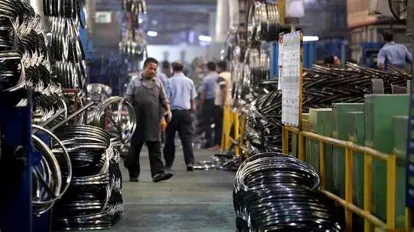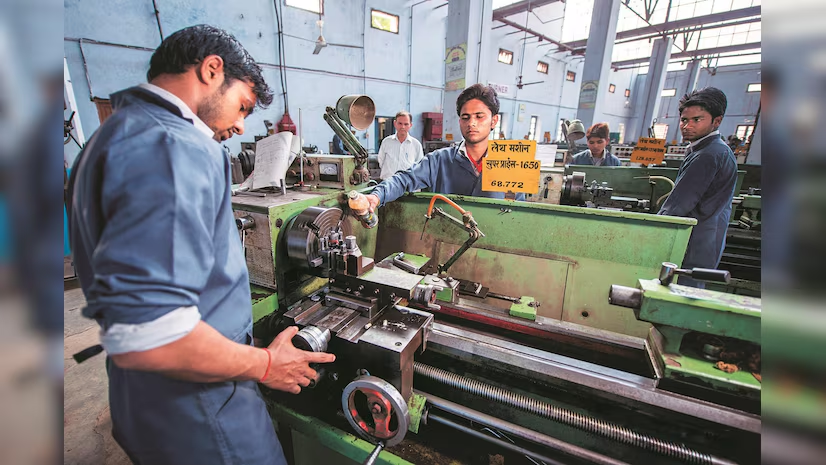Share

The Samadhaan portal was launched seven years ago to help MSMEs get payments faster. Despite some relief, loopholes in the system tilt it in favour of the buyers. How can micro and small enterprises equip themselves better to deal with payment disputes? Vijay Khanna had to shut down his bill printing and logistics company in 2013 and sell his residential property to clear business dues when a conglomerate he serviced refused to pay him because of a disagreement. Though an MSME arbitration panel ruled in his favour in 2017, he is yet to get the payment of Rs 8 crores, along with Rs 12.5 lakhs as interest. While such cases are not new in India, what is disheartening is that the logistics services provider, IBEX Integrated Business Express, could not get the money despite getting a favourable ruling from the Micro & Small Enterprises Facilitation Council (MSEFC) — set up by the Government to ease the very issue of payments faced by small businesses. Getting their bills cleared in time is especially important for MSMEs as they have thin margins and no financial buffer to face prolonged delays in getting payments. The issue has paralysed many MSMEs, leading to the setting up of MSEFCs at the state level. IBEX had approached the MSEFC in Thane for settlement of its dues and the case was heard from 2014 to March 2017, when the arbitration panel ruled that the company was owed money. But the other party kept contesting the ruling in Court year after year, says Khanna, who is now providing consultancy services to various last-mile logistics companies and was earlier the Founder and Promoter of IBEX. Several MSMEs like IBEX are either awaiting resolution though MSEFCs have ruled in their favour years ago, or have been able to claim only a part of the payment and have had to forgo the interest component. In other words, MSMEs continue to be plagued by delayed or non-payment of bills for goods and services rendered.
No solution in Samadhaan:
MSME Samadhaan — launched in October 2017 by the Ministry of MSME to address the issue of delayed payments to MSMEs — shows that 85,759 cases are pending, amounting to claims of approximately Rs 26,876 crores. This data even includes cases filed before the Samadhaan portal was launched by the Ministry. According to the Micro, Small and Medium Enterprises Development (MSMED) Act, 2006, the facilitation councils or MSEFCs were set up at the State level to deal with cases of delayed payments of micro and small enterprises. A detailed look into the state-wise data shows that MSEFC-Mumbai has the maximum number of cases filed at 6,505; followed by MSEFC-Gandhinagar at 6,335 cases and MSEFC-Pune at 6,287.
This data and cases like that of IBEX throw up all important questions: why have MSMEs not been able to find a solution to the most pressing issue of delayed payments faced by their irk despite Samadhaan, which means solution in Hindi. Khanna points out that while bigger companies have the resources to keep fighting a payment case in court, the small vendors cannot afford a prolonged legal battle as it drains their funds and distracts them from focusing on their business. He suggests that MSEFC judgments should not be subject to further litigation, without the approval of a Central Committee formed for this purpose.
The nitty-gritty:
According to the MSMED Act, a case referred to the MSEFC has to be decided within 90 days. However, this deadline is often breached, say industry players. Moreover, a buyer not clearing payment within 45 days of receiving the goods has to pay the supplier a compound interest at three times the bank rate. While these rules put MSMEs on a strong footing, the way things actually happen do not help small businesses. Speaking on condition of anonymity, the promoter of a Lucknow-based MSME mentions that a trading company did not pay him after buying some goods. He went to the arbitration panel in October 2021 and attended 8 conciliation meetings that spanned over 1.5 years. “The opposing party never used to show up, and the case went into arbitration. Eventually, the award was granted in 2023. But we are yet to get the money which, along with the interest, now stands at Rs 1.12 crores,” he says, adding that the other party has not gone to a higher Court yet. The entrepreneur tells ET Digital that while the MSMED Act is good on paper, its implementation remains a problem. “It is essential to make the award time-bound. The Central Government should come out with a model rule book for effective implementation and the States should then implement it properly,” he adds.
Industry experts concur with these views and add that the process needs to be revisited to see how the verdict can be implemented faster. Rajata Mehra, Partner, Rajat Chemical Industry, recalls his case many years ago, where he had to forgo the interest amount and had to be happy getting only the principal amount. “We were more than happy as it got settled within a week. Going behind the entire amount would have amounted to being penny wise, pound foolish,” he says, clarifying that if they had wanted the interest component also, it could have meant another legal entanglement and more time. “At the end of the day, business is all about being pragmatic.” A quicker resolution would have been possible if the MSEFC had dedicated officials to carry out the task. “Or these arbitrations should be clubbed and dealt with by one Additional Commissioner or Additional District Magistrate. Then the hearing would proceed relatively faster than usual,” he states. According to the MSMED Act, a facilitation council should consist of 3 to 5 members — the Director of Industries or any other officer in the Department of the State Government having administrative control of small-scale industries; one or more office-bearers or representatives of associations of MSEs in the State; and one or more representatives of banks and financial institutions lending to micro or small enterprises; or one or more persons having special knowledge in the field of industry, finance, law, trade or commerce.
Legal loopholes:
However, this is far from the practice in reality. Facilitation Councils are sometimes unable to work as effectively as they are supposed to because those heading these are themselves not aware of the rules and responsibilities, say experts.
Ashok Saigal, Co-Chairman of the CII National MSME Council, says the feedback they get from their members is that the people appointed to these Councils are not familiar with the rules. “We have often felt that there is a need to train these officials. CII has expressed willingness to work with the States to educate the facilitation Council members about their responsibilities and duties. Another aspect is that many States have only one or two FCs, and that may not be enough to handle the case in a large State. Many more councils should be set up to make it easier for people to approach them,” he states. Another reason plaguing small businesses is that though the rules state that Courts should not entertain an appeal to an MSEFC ruling unless the appellant (the one who has to pay) has deposited 75% of the award amount, this is not being done in practice. “In most cases, a writ petition is filed instead of a normal appeal, and this stalls the implementation of the award. Once the writ petition is in, it becomes like any other civil matter. It goes to a Court and one has to go through the long litigation processes,” he explains. It is of utmost importance to close this “escape route” as otherwise the opposing party will file a writ petition or get a stay order. “The MSME just gives up in a lot of such cases.” Saigal suggests that 75% of the award amount be released to the SME against a guarantee bond. This will give the business immediate liquidity and keep the door open for the opposing party to get their money back in case they win the appeal.
Buck Stops at MSMEs:
But the bigger companies alone cannot take the blame. Another side of the story is that the role of MSMEs should also need greater scrutiny. Small businesses or vendors often hesitate to hire a lawyer and get their contracts checked for loopholes. They think this is an unnecessary expense and then end up paying a heavy price later when the buyer refuses payment because of some reason or the other. Amit Kumar, Founder & CEO at MSMEx, says MSMEs need to revamp their documentation processes and mention the payment terms very clearly in the contract to avoid any loose ends. “If they don’t have a watertight contract, the other party will get a lot of areas to play around with and not pay,” he says. In India, MSMEs mostly download contractual agreements from online sources and don’t get the advice of legal professionals to save some expense. “Such agreements will not stand in the court of law as it is not a valid document,” he says. Kumar gives the example of the Fédération Internationale Des Ingénieurs-Conseils (FIDIC), an international standards organisation that has a suite of contract templates for the consulting engineering industry. These streamlined contracts become a template and companies can access them easily. India needs to implement such a model, he says. A lot of MSMEs also operate solely on trust, and this also works against them when legal disputes arise. Kumar suggests that to minimise such disputes, the ministry can look at varied standardised contract templates that MSMEs can refer to according to their business and take up what works best for them. In the meantime, due diligence is the only way MSMEs can protect themselves. Promoters of small businesses should develop a thorough understanding of legal contracts and how they are implemented; ensure efficient documentation within the companies; and be aware of their rights, so that they can handle a dispute smartly.
Related Posts
SEARCH SMECONNECT-DESK
RECENT POST
- As Gujarat announces new textile policy today, here’s a look at why Maharashtra’s Navapur is being preferred by Surat factory owners
- Dr. Mansukh Mandaviya Chairs High-level Meeting on Employment Data
- Registration certificate not mandatory for exporters seeking benefits: DGFT
- Gujarat SMEs ride IPO boom
- How Gujarat is Shaping Up as India’s Semiconductor Hub, Building on its Strength as an Economic Powerhouse







